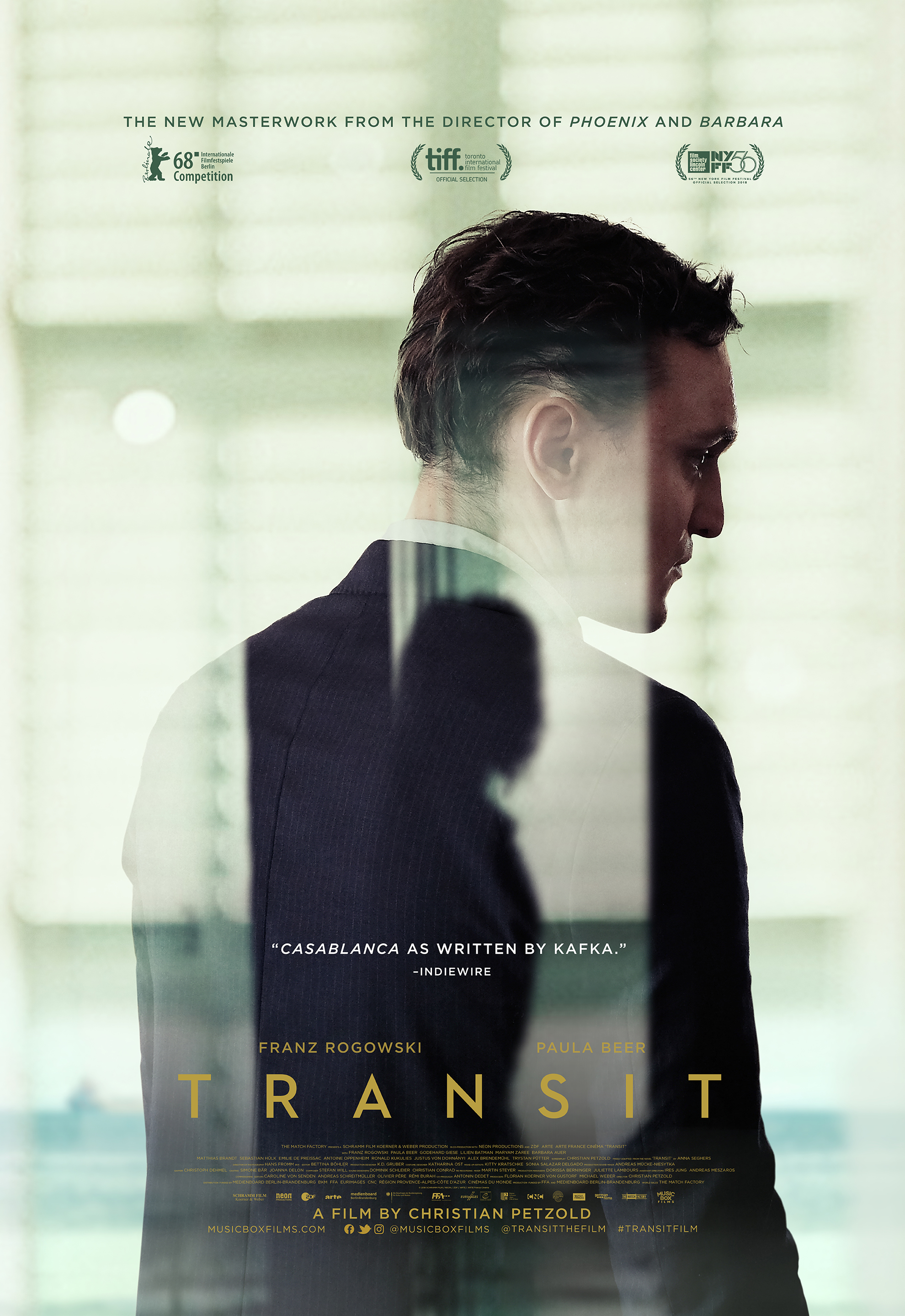Film Review: Transit (2019)



A well-crafted experiment in existential crisis, dystopian predictions and the nature of identity, Transit is also one of the year’s more creative literary adaptations. Based on a 1942 novel of the same name by German writer Anna Seghers, the source material takes place during World War II, while the cinematic version is set in a slightly off-kilter present-day France with German troops steadily marching toward Paris.

As a WWII narrative, Transit is compelling in its own right, but the modern setting — complete with thinly veiled contemporary geopolitical moods — chosen by writer/director Christian Petzold (Phoenix) is a flash of brilliance. This change in time elevates the film from a historical account of past chaos and upheaval to a modern commentary on the resurgence of right-wing and fascist ideas.

As it explores these concepts, Transit also interrogates Kafka-esque bureaucracy and existentialism. After discovering the body of a dissident writer, Georg (Franz Rogowski, Happy End) snatches up the stranger’s unfinished manuscript and traveling papers. Quite by accident — and governmental ineptitude — he assumes the dead man’s identity and passage to Mexico, resulting in not only Georg’s attempt to escape Europe (and to help others escape) but an exploration of character and humanity.

As his free will is challenged and his “self” erodes, questions arise concerning whether Georg is fundamentally the same person or if his unquestioned ownership of a deceased man’s name transforms him into something new. Pondering where Georg begins and ends proves an engaging, rewarding and thoroughly entertaining experience.
Originally published by MOUNTAIN XPRESS.
